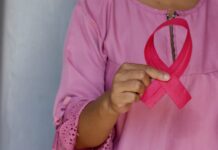Once again, it’s that time of the year. The signs are everywhere: cracked lips, dry skin (because of obvious loss of moisture), sole of the feet and even the skin itself. Some cracks even become ulcerated. It is the harmattan period.
Harmattan has been described by Climatologists as a hot, dry and dusty wind that blows over West Africa.
The northeasterly wind blows from the Sahara Desert into the Gulf of Guinea between the end of November and the middle of March.
In Nigeria, the harmattan period usually start early in December and goes on till the middle of January
On its passage over the desert, the wind picks up fine dust and sand particles, while the air is particularly dry and desiccating when the wind blows over the region.
It is usually characterized by a cold, dry, dusty wind in the evenings until the early hours of the morning. When the harmattan blows hard the heavy amount of dust in the air can severely limit visibility and even block out the sun, comparable to a heavy fog.
Its Effect On Your Health
- It is a natural hazard that affects all exposed surfaces of humans like skin, the eyes, nose, mouth and the respiratory tract which directly communicate with the atmosphere.
- During this period, the eyes are exposed to the dust particles carried by the dry, cold and dusty wind leading to itching, redness, and foreign body sensation. Allergic eye diseases are also common.
- This dust particles may overwhelm the system and predispose it to infection. Sneezing, cough, catarrh and even nasal bleeding could be experienced.
- Due to the dust that settles on foods that are not properly stored or washed before consumption, there is also an increase in the incidence of cases of diarrhea disease and other food borne diseases.
- The cold dusty weather tends to aggravate the condition of people with existing respiratory conditions like asthma.
- The dry, cold and dusty harmattan wind could also trigger sickle cell crisis.
Protection And Care
- The skin can be kept healthy by application of oily creams and weather friendly clothing. Protective jackets such as trousers, socks and other jackets should be worn when necessary.
- Use appropriate skin cream. Apply them on areas that are prone to dryness like the lips, hair, face, the heels of the foot, etc.
- Rinse your eyes with clean water. If you can, wear protective spectacles. Reduce exposure to the dust as much as possible.
- Special precautions should be taken for individuals with pre-existing chronic chest infection like asthma to reduce exposure to the dusty atmosphere. Inhalers should be carried at all times.
- Regular water intake. More water should be consumed during this period considering the rate of dehydration.
- Consumption of more fruits and vegetables to help boost immunity. Also, these fruits and vegetables should be properly washed before eating.
- Strenuous activities that lead to high oxygen demand should be reduced.













